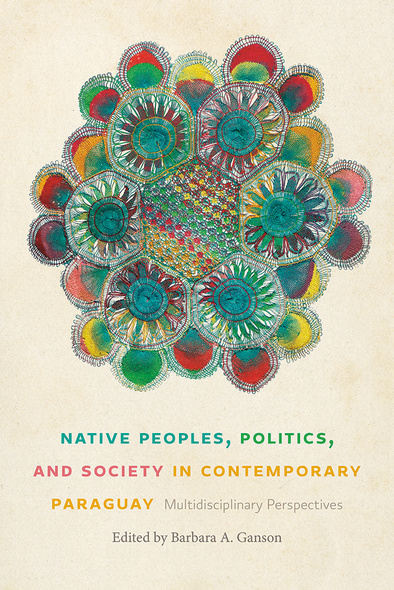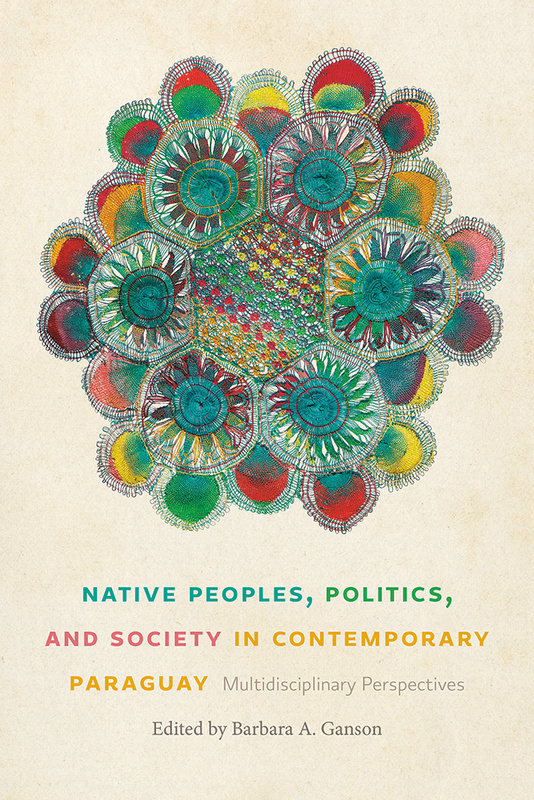
Native Peoples, Politics, and Society in Contemporary Paraguay
Multidisciplinary Perspectives
This unique collection of multidisciplinary essays explores recent developments in Paraguay over the course of the last thirty years since General Alfredo Stroessner fell from power in 1989. Stroessner's strong authoritarian legacy continues to exert an impact on Paraguay's political culture today, where the conservative Colorado Party continues to dominate much of the political landscape in spite of the country having transitioned into a modern democracy.
The essays in Native Peoples, Politics, and Society in Contemporary Paraguay provide new understandings of how Paraguay has become more integrated into the regional economy and societies of Latin America and changed in unexpected ways. The scholarship examines how the political change impacted Paraguayans, especially its indigenous population, and how the country adapted as it emerged from authoritarian traditions. Each contribution is exemplary in the scope and depth of its understanding of Paraguay, especially its indigenous peoples, politics, women's rights, economy, and natural environment.
The authors demonstrate that while Paraguay struggles with environmental destruction and continues to push for more inclusive rights for women and indigenous groups, there is hope for a more inclusive society as democratic rule slowly becomes the norm.'Choice
A political and economic approach. . . . Well balanced.'--Guillaume Candela, Hispanic American Historical Review
This volume captures modern, democratic Paraguay in all its social, political, and economic complexity, with important insights into the role of indigenous people and women as well as national politics and international trade.'--Gary Van Valen, author of Indigenous Agency in the Amazon: The Mojos in Liberal and Rubber-Boom Bolivia, 1842-1932
A compelling introduction to the central issues in contemporary Paraguayan social and political history.'--Juan Manuel Casal, coeditor of Paraguay en la historia, la literatura y la memoria: Actas de las II Jornadas Internacionales de Historia del Paraguay en la Universidad de Montevideo
Barbara A. Ganson is a professor of history and the director of Caribbean and Latin American Studies at Florida Atlantic University in Boca Raton, Florida. She is also the author of The Guaraní under Spanish Rule in the Río de la Plata.
List of Maps
List of Tables
Acknowledgments
Chronology of Major Events
Melissa Birch, Paola Canova, Sarah Patricia Cerna Villagra, Barbara A. Ganson, and René D. Harder Horst
Introduction
Barbara A. Ganson
Chapter One. Indigenous People in Paraguay and Latin America's Move to Democracy
René D. Harder Horst
Chapter Two. The Guaraní: From Forest People to Urban Refugees
Richard K. Reed
Chapter Three. Rethinking Ayoreo Urbanity: Labor Relations and Land Claims in a Mennonite Colony of the Chaco
Paola Canova
Chapter Four. Paraguay's Political System from Authoritarian Hegemony to Moderate Pluralism, 1954-2019
Sarah Patricia Cerna Villagra, Sara Mabel Villalba Portillo, Eduardo Tamayo Belda, and Roque Mereles Pintos
Chapter Five. Gender Quotas and Women's Political Identities in Paraguay
Brian Turner
Chapter Six. Paraguay and Mercosur: Unlocking Global Potential in a Regional Trade Agreement?
Melissa Birch
Contributors
Index




